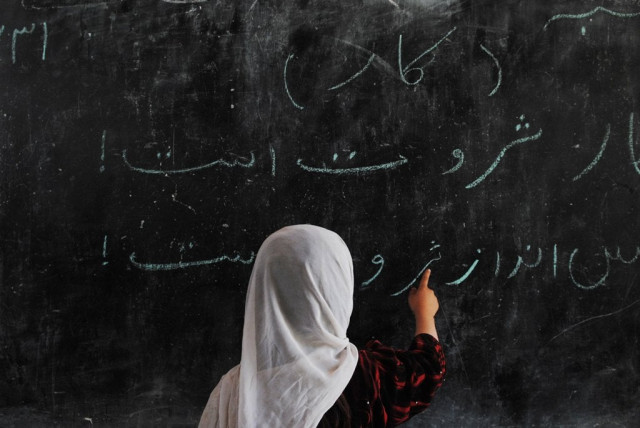Not as easy as ABC: Sindh’s education, health 'emergency' is in crisis
CM’s declaration being called a ‘political gimmick’ as little progress has been seen

PHOTO: AFP
"The CM declared the emergency in July, 2016 but ground realties show that he did not bother to set targets, frame policy or devise a plan to achieve any targets," an official in Sindh government criticised, adding that all the authorities who were supposed to play their roles in resolving the crisis are mum on the issue.
"The first step was to devolve powers from the chief minister to the minister or secretaries concerned who cannot take action against senior officers at district levels," sources said, adding that a majority of the district education officers, district health officers and medical superintendents of public hospitals are appointed on political grounds and no one but the chief minister can take action against them.
Education officers get tablets to check attendance of teachers
"An idea was floated to empower provincial ministers and secretaries to hold officers of grades 18 to 20 accountable by reviewing their performance [nothing was done]," the sources explained.
During a recent meeting at CM House, Shah was irked by officials in the education department for failing to achieve their targets in revamping the education sector. He admitted that government has failed to achieve its targets and soon after the meeting, education secretary Abdul Aziz Uqaili was transferred.
Official statistics reveal that between 2007 and 2017, around $700 million has been given in loans by the World Bank for the Sindh Education Sector Reforms Programme, with $66 million as a grant under the Global Partnership for Education to bring about change in the sector. Apart from this, €70 million has been given by the European Commission but the government has little show for it.
Problems in education: SHC CJ takes notice of poor condition of schools
In the 2017-18 budget, the provincial government has increased the development budget for education from Rs17 billion to Rs21 billion, which includes Rs11 billion for schools, Rs5 billion for colleges and Rs3.6 billion for boards and universities. Similarly, the development portfolio of the health budget stands at Rs15 billion, compared to last year’s Rs14 billion allocation. Despite the increase in funds, Shah was shocked to learn at the meeting that 55% of the province's children between the ages of five and 16 are out of school and 6,157 school buildings have been deemed damaged or dangerous.
Asghar Soomro, a researcher who has worked intensively in the education sector said the education emergency cannot achieve its targets until it gets legal cover. "The government should make drastic changes if it wants to change the status quo. It should form a committee to look into the failure of quality of education, consult education experts in framing policy guidelines and ensure accountability of officers across the board," he suggested. He added that the government has to set targets to be achieved during a specific time period. "I don't think they are serious in this cause. I personally know they have not done homework for it. The chief minister's announcement was just a political statement," he remarked.
Mosharraf Zaidi, campaign director for Alif Ailaan, an organisation working to bring reforms in the education sector told The Express Tribune that it was not a resources issue. The government has no intention to bring change, he claimed. "It's not the chief minister [who is at fault]. Decisions are made by other party," he said, adding that around four secretaries in the education department have been changed in the last three months, which shows how seriously the government takes the education emergency.
More than 100 education dept officers found involved in corruption
"If anyone wants to work, they show him the door," he said. Comparing the education standard in Sindh to that of other provinces he said, "Believe me, where I go people mock Sindh’s education department ". Zaidi said political influence in the education sector has made a mess of it.
Despite multiple attempts, the education or health ministers could not be reached for their comments. The spokesperson for CM House defended the government and said it has achieved results compared to the previous tenure. "The enrolment target for primary education was fixed at 77% and 65% has been achieved," he said, adding that the enrolment rate has increased but number of teachers has decreased due to retirement and implementation of the biometric system in the province. "With the appointment of more teachers, you will see change," he vowed, adding that the chief minister is focusing on both sectors by releasing funds and monitoring performance.



















COMMENTS
Comments are moderated and generally will be posted if they are on-topic and not abusive.
For more information, please see our Comments FAQ